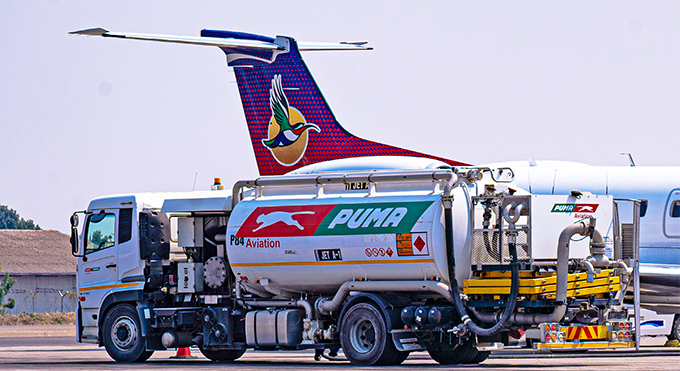Puma Energy Zimbabwe cements its commitment to Zimbabwe’s aviation industry with the grand opening of a brand new US$3 million fuel storage facility at the Robert Gabriel Mugabe International Airport.
This significant investment underscores the company’s dedication to infrastructure development and aviation supply security within the country.
The ceremony, a landmark occasion for both Puma Energy and Zimbabwe’s air travel sector, saw prominent figures gather to celebrate the achievement.
In his opening remarks, Transport and Infrastructural Development Minister, Felix Mhona, applauded Puma Energy for prioritizing national development projects.
He emphasized the government’s commitment to collaborating with private entities that share their vision of a well-connected and efficient Zimbabwe. Puma Energy’s regional director, Fadi Mitri, echoed this sentiment, highlighting the critical role that robust aviation infrastructure plays in fostering regional trade and economic growth.
He pointed to the rising demand for jet fuel across Sub-Saharan Africa, emphasizing Puma Energy’s role in bridging the gap in petroleum infrastructure.
The new facility boasts a significant storage capacity, ensuring a consistent supply of high-quality Jet A-1 fuel that meets stringent international aviation standards.
This guarantees reliable refuelling for commercial airlines, both domestic and international.
Puma Energy’s existing clientele at the airport includes Ethiopian Airlines, RwandAir, and Air Malawi, and the new facility positions them to expand their reach further.
The opening ceremony wasn’t just about celebrating a new building; it symbolized a commitment to quality and safety.
Officials from the Civil Aviation Authority of Zimbabwe (CAAZ) were present, underscoring the collaborative effort to ensure the highest safety standards in Zimbabwe’s aviation sector.
The presence of CAAZ representatives signifies the rigorous inspections and certifications the facility underwent to guarantee safe and efficient aircraft refuelling operations.
The economic impact of Puma Energy’s investment extends beyond the aviation industry.
The project has created employment opportunities for Zimbabweans, contributing to the nation’s workforce development.
Additionally, the increased efficiency in fuel storage and distribution is anticipated to have a ripple effect, positively impacting related sectors like logistics and transportation.
This latest development by Puma Energy is a testament to the company’s long-term vision for Zimbabwe. By prioritizing infrastructure development, adhering to international safety standards, and fostering collaboration with government bodies, Puma Energy is not only securing its own presence in the market but also actively contributing to the nation’s economic growth and its position as a regional aviation hub.
Text : Martin Chemhere

